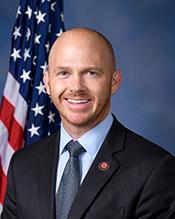0
Federal Employee Return to Work Act
2/5/2025, 1:23 AM
Summary of Bill HR 236
Under the provisions of the bill, telework employees who are deemed ineligible for certain pay adjustments would be prohibited from receiving them. This could impact a variety of annual adjustments, such as cost-of-living increases or performance-based raises.
The bill does not specify which telework employees would be affected by this prohibition, leaving room for interpretation and potential controversy. Critics of the bill argue that it could unfairly penalize remote workers who may have valid reasons for telecommuting, such as health concerns or family obligations. Supporters of the bill, on the other hand, argue that it is necessary to ensure that pay adjustments are distributed fairly and in line with the needs of the organization. They believe that telework employees should be subject to the same standards and criteria for pay adjustments as their in-office counterparts. Overall, Bill 119 HR 236 raises important questions about the future of remote work and how pay should be determined for telework employees. It will be important for lawmakers to carefully consider the potential implications of this legislation and how it may impact the growing trend of telecommuting in the United States.
Congressional Summary of HR 236
Federal Employee Return to Work Act
This bill prohibits providing certain annual or locality-based pay increases to teleworking federal employees.
Currently, federal law mandates annual adjustments to General Schedule (GS) pay rates according to (1) a formula based on the annual percentage change in the Employment Cost Index (a measure of labor costs in the private sector); and (2) the difference between public and private sector pay rates in an employee's locality, if that difference exceeds 5%. For example, in 2025, the default annual rate of pay for a GS-7 (step 1) employee is $49,960; the adjusted annual rate of pay for a GS-7 (step 1) employee in the locality pay area that includes Washington, DC, is $57,164.
The bill makes executive agency employees who telework at least one day each week (or, in the case of an alternative work schedule, 20% or more each week) ineligible for these payments.
The bill is effective on the first day of the fiscal year beginning after the bill's enactment.





